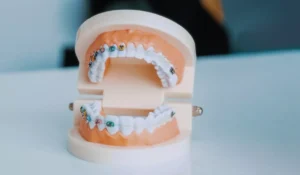Two topics this month are bringing me into an area of research, Autism Awareness Month and Child Abuse Awareness Month. Today I discuss child abuse awareness and the topic of child abuse for it hits home very deeply with me.
This year the discussion on a website I ventured upon is to “Make Meaningful Connections” and that is the area I will focus on today for it’s the most beneficial way to help bring more awareness to child abuse and to help detect child abuse.
Who does child abuse affect and what does the perpetrator and victim look like?
Many adults I know were abused in one way or another in their youth, the sad reality is there is far more abused children than many care to open their eyes to or realize. Abuse comes in many forms and in all honesty, is usually done by someone close to the child; be it a caregiver, educator, camp counselor, church official, parental unit or relative. A majority of child abuse also goes undetected and under-reported, I think we all know that we are born with defense mechanisms that can kick in to help us hide the pain or dangers we may be placed under. It’s difficult to know for sure if a child is being abused if there are not outwardly obvious signs. A perpetrator looks like your every day, average person and can be one of the most friendliest people you meet. The reality is that people who abuse children have no boundaries in ethnicity, background or social standing. All too often someone who is placed in a predominant role of helping to care for a child, yes that can even mean parents, are found to be abusive in some form or another. Remember, a child abuse victim can look just like you or me because they have learned to cope with the life that they live for fear of their perpetrator doing more harm to them. Also remember, the perpetrator doesn’t always fit into a stereotyped appearance.
How can Meaningful Connections Help an Abused Child?
Children who are abused, specifically by someone they love and trust, can destroy their trust in adults as a whole. Honestly, abuse can destroy a child’s trust in other children too, for fear that they will be ridiculed or be told it’s their fault for what has happened to them. A child who has been abused has had their whole world ripped apart by a mean, horrible person who has deep inner issues so badly rooted in their blood that they feel ruining and hurting a child is perfectly acceptable to do. Once a child has been so deeply wounded with abuse, it will be difficult for them to know who to open up to, who to tell the truth to. This is where a meaningful connection comes into play. If you can be that one person for any child, whether it be your own or someone else’s, you will have opened the door to building up trust with that hurt child and in turn the child will eventually start to discuss things that have happened to them. A meaningful connection with children can help open the doors to them to get help now, rather than later. Getting help now versus later will be the difference between a confused, hurt adult or a well balanced, educated adult.
What Can you Do Help End child Abuse?
Honestly, I don’t think child abuse will ever stop. There are far too many broken adults in this world who have a cycle of reliving their past hurt by placing harm upon children in their own environment. If adults can’t get the therapy they need by admitting they have a problem, then there is little hope to ending child abuse as a whole. What we can do to help children, is to bring more awareness to child abuse. Be that meaningful connection to the children that are a part of your world. Gain the trust of these children and be that open minded listener they need. Child abuse can be physical, emotional and sexual, the list can go on and on. What matters most is for you to be that one person out of many that takes the child’s hurt and listens, hears them out and does what they can to report abuse of any kind to the proper authorities.
How Can you Help an Abused Child?
Once you realize that you have been talking to a child who has been abused, all you can do is really be the support they need. Encourage them to trust the authorities who are placed to take care of the legal aspect of child abuse. Explain the scenario that may play out at the child’s level and be that one person they can run to when they feel no one else cares to believe them. Realize that emotional abuse is a tricky form of abuse and difficult to prove to anyone, for emotional abuse is strictly based on the feelings of a child. We all know that children may not like a strict parent and in turn it may appear as if they are retelling a story to you of emotional abuse, but as the adult listening to that child, take time to keep your ears open and realize the difference between a strict parental unit and an emotionally abusive situation.
The simplest way to help an abused child is to be their rock! Teach the children skills to cope with abuse that they are unable to get away from, teach the children skills that build their self esteem so that one day they can speak up for their own self against their perpetrator and in turn still have a chance at a successful adult life.




I didn’t know it was National Child Abuse Awareness Month. I’ll have to find a way to be involved. Every little bit helps, right!